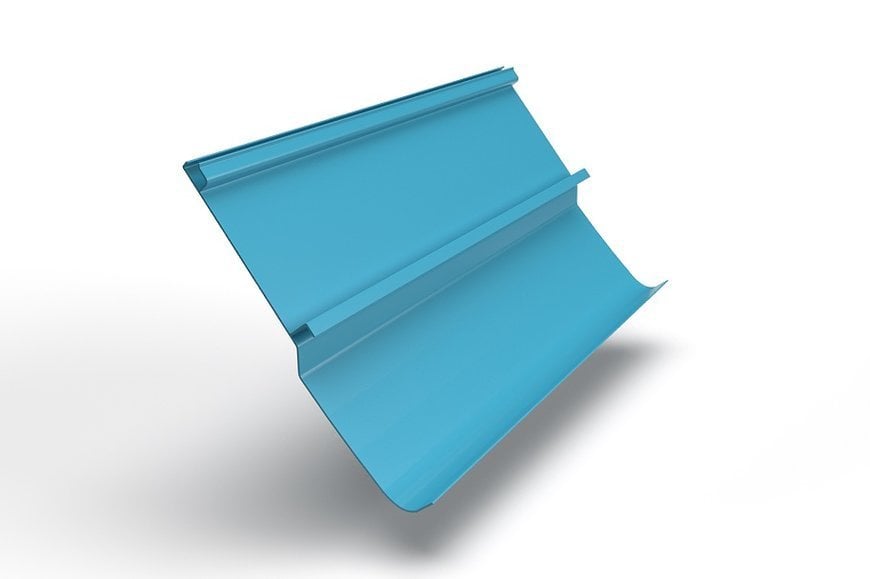www.magazine-industry-usa.com
26
'22
Written on Modified on
Rethinking Refrigerated Truck Bodies & trailers with Exel composites
The trucking industry is one of the most critical industries in the US, playing a crucial role in every key supply chain, from medical to defense. The industry is constantly searching for ways of improving overall vehicle efficiencies without compromising long life cycles.

For example, reducing weight provides fuel savings which can be converted into better efficiency or increased cargo loads, and materials which provide better thermal insulation can further improve fuel efficiency. Here Roger Gastineau, North American sales representative for global composite parts manufacturer Exel Composites, explores how using composites in refrigerated trailers can help the American trucking industry improve its fuel efficiency and transport more cargo.
Swapping out steel and aluminum parts in truck bodies and trailers with composite parts provides several key advantages, such as weight savings, improved corrosion resistance, and improved thermal insulation.
The corrosion resistance of composites is much greater than that of metals. Typically, metals require additional painting or other coatings, such as hot-dip galvanization using zinc, to combat corrosion, but these wear off over time and contribute to ongoing maintenance costs. Composites are designed with corrosion resistance in mind and don’t require these additional coatings to withstand their harsh operating environments.
Next, imagine driving a truck from Canada to Mexico, you are certain to go through extremely different environments whether it be large differences in temperature, humidity, or road surfaces. The temperature changes that a normal trailer goes through on these long journeys can cause metal components to warp, something which eventually impacts structural integrity and makes trailers unsafe.
Composites are generally more thermally stable materials than their metal counterparts, meaning warping is less likely to occur. For example, if fiberglass crossmembers are used instead of traditional steel and aluminum ones. Another application would be fiberglass Z-posts in place of conventional aluminum ones. The fact that the linear thermal expansion is significantly lower for fiberglass composites than aluminum or steel makes them much more suited to these long journeys through different climates.
There is also the added benefit of reduced fuel consumption thanks to the lighter weight of composite parts, providing further savings and lowering carbon emissions.
It is not just physical properties where composites have the edge over comparative metals. The composite market is much more stable than the metal market, with less volatile pricing and more predictable lead times. Manufacturers who use large volumes of steel or aluminum are at the mercy of market conditions, often not knowing the exact price or lead time for parts until they place their orders. This causes a risk of disruption for manufacturers and margin considerations.
Continuous manufacturing
Reinforced fiberglass composites made using continuous manufacturing processes, such as pultrusion, are well suited for use in refrigerated trailers because these processes are designed for high-volume production. This means that they have repeatability and consistent quality compared to other composite manufacturing processes involving more manual steps.
Exel Composites specializes in pultrusion technology. In this manufacturing method, resin saturated reinforcing fibers are pulled through a heated dye, which cures the composite. Pultrusion allows increased flexibility for profile design and structural possibilities, meaning the manufacturer can easily tailor the composite to the end user’s application, for example adding additional reinforcement in only one part of the profile.
Another benefit of manufacturing truck and trailer parts using composites in place of metals is the ability to control the aesthetics of the product, both in terms of color and finish, whether it be a gloss, matt, or metallic look the client is after, this can be achieved using composites. For example, pigmentation can be added to the resin resulting in a consistent color that is not just on the surface. Of course, composite parts can also be painted.
Because the pultrusion manufacturing method produces profiles in large volumes, fewer parts are required for the trucks and the overall vehicle weight is reduced, making it a more cost-effective way to produce trailer parts.
All these advantages mean composites could hold the key for refrigerated trailer manufacturers looking to construct lighter, more efficient truck bodies and trailers without sacrificing long service lives.
Exel Composites is well placed to help the trucking industry implement new composite-based solutions as one of the leading global experts in pultruded composites and US-based manufacturing and support capabilities from its factory in Erlanger, Kentucky.
Furthermore, Exel Composites can draw on over 30 years' experience in similar applications in the European truck and trailer market.
To learn more about Exel Composites’ pultrusion expertise and composite solutions that can benefit the trucking industry, visit the website today: exelcomposites.com/composite-solutions/composites-in-transportation/truck-and-trailer-profiles/
www.exelcomposites.com

